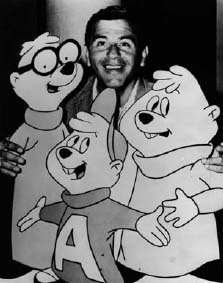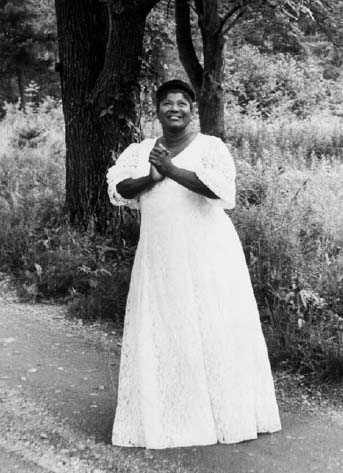The Encyclopedia of Dead Rock Stars (28 page)
Read The Encyclopedia of Dead Rock Stars Online
Authors: Jeremy Simmonds

Lest We Forget
Other notable deaths that occurred sometime during 1971:
Louis Armstrong
(formidable US jazz musician/vocalist ‘Satchmo’ scored US and UK #1 pop hits with ‘Hello Dolly’ and ‘What a Wonderful World’ respectively; born Louisiana, 4/8/1901; heart attack, 6/7)
Reverend Roy Blackwood
(US gospel singer and founder member of The Blackwood Brothers, who were close associates of Elvis Presley; born Mississippi, 24/12/1900; natural causes, 21/3)
Charlie Fuqua
(US singer and founder member of vocal legends The Ink Spots; born Connecticut, 20/10/1910; unknown, 21/12)
Wynton Kelly
(noted US jazz/R & B pianist who played with Dizzy Gillespie and later Miles Davis; born Jamaica, 2/12/1931; epileptic seizure, 12/4)
Leslie Kong
(Jamaican producer who worked with Bob Marley, Jimmy Cliff, Desmond Dekker and The Melodians among others - he somehow also ran an ice-cream parlour; born 1933; heart attack, 9/8)
‘Papa’ George Lightfoot
(US blues vocalist/harmonica-player who worked with Fats Domino; born Mississippi, 2/3/1924; heart attack and respiratory failure, 28/11)
Lenny McKay
(US doo-wop lead/bass singer with The Jesters; illness)
Harold McNair
(Jamaican jazz-trained saxophonist/flautist who played with Cressida, Donovan and Ginger Baker’s Airforce; born Kingston, 5/11/1931; lung cancer, 26/3)
‘Boll Weevil’ Bill Moore
(US bluesman; born North Carolina, 22/4/1913; bronchopneumonia, 2/5)
Herman ‘Little Junior’ Parker
(US blues harmonicaplayer with The Beale Streeters, who played with Howlin’ Wolf; born Arkansas, 3/3/1927; died during surgery for a brain tumour, 18/11)
Thomas Wayne Perkins
(US rockabilly singer who scored in 1959 with ‘Tragedy’; born Minnesota, 22/7/1940; car crash - three years after the tragic death of his guitarist brother Luther, 15/8)
Francis Wolff
(German-born label executive and co-founder of New York’s Blue Note Records; heart attack, 8/3)
1972
JANUARY
Sunday 16
David Seville
(Ross S Bagdasarian Sr - Fresno, California, 27 January 1919)

Known primarily for his novelty output, Seville was a respected rockabilly musician and writer during his early music career: success for Rosemary Clooney with Seville’s co-written ‘Come on-a My House’ (1951) then gave the artist scope to promote his own work. As fictitious double act Alfi & Harry, he signed with the Los Angeles label Liberty, getting an unexpected UK Top Twenty hit with ‘The Trouble with Harry’ (1955). Three years on, Seville hit paydirt using his own (assumed) name with a US number one, the very odd ‘Witch Doctor’, the first of many records to employ a double-speed vocal track. Winning three Grammy awards, Seville also acted under his real name in several movies, including Alfred Hitchcock’s
Rear Window.

David Seville & The Chipmunks: Presumably worked for peanuts
Seville’s most enduring commercial success, however, was with The Chipmunks – a mildly irritating rodent trio (named after three of Liberty’s executives) that became popular with young television audiences. Astonishingly, Seville saw himself once again at US number one with ‘The Chipmunk Song’ – and the million-seller held that position for a month early in 1959. Perhaps blazing a trail for The Wombles and Smurfs to follow, the buck-toothed cartoon trio then managed a further seven Top Forty hit singles to 1963. Seville also released a good number of Chipmunks albums during the sixties
(The Chipmunks Sing The Beatles;
anyone?). By the time of his premature death from a heart attack in Hollywood, Seville had shifted over 30 million records. The characters were resurrected by Ross Bagdasarian Jr in 1980.
Thursday 27
Mahalia Jackson
(New Orleans, Louisiana, 26 October 1911)

The undisputed Queen of Gospel was born into the family of a Southern Baptist minister; sadly her mother died when she was just five. The granddaughter of slaves, Mahalia Jackson was working full-time by age sixteen, and singing for her faith – the beauty of her rich, near-faultless contralto lifting the hearts of many during the Depression.
Relocating to Chicago in 1927, she joined the Greater Salem Baptist Church – collaborating with ‘Father of Gospel’ Thomas Dorsey – and toured with a quintet before carving out her own niche as a solo recording artist with Decca and Apollo. Because she refused to follow the nightclub route into the world of secular music (unlike later singers Sam Cooke and Aretha Franklin), Jackson arguably became the most influential black gospel performer to those that came afterwards, and also introduced a generation of white listeners to the genre. It should be remembered, too, that in those times gospel often sold in quantities that dwarfed sales of other musical styles: Jackson’s mid-thirties hit ‘I Will Move on up a Little Higher’, for instance, shifted over a million copies. By 1954 her importance was finally recognized by large label Columbia, while her influence extended well beyond her music: Jackson was a close ally of Martin Luther King, and frequently joined the black civil rights activist on his crusades – in particular the Alabama bus boycott of 1955, at which she performed. During her career, Jackson sang before four US presidents – and her astute business acumen also saw her launch a successful chain of chicken restaurants.

Mahalia Jackson: Even Aretha looked up to her
‘A voice like this comes not once in a century, but once in a millennium.’
Martin Luther King
Jackson’s relentless work ethic had a detrimental effect during her final years. After a lifelong battle with high blood pressure, she died from heart failure in Evergreen Park, Chicago, at the age of sixty. Devotee Aretha Franklin sang ‘Precious Lord, Take My Hand’ at her New Orleans funeral.
MARCH
Tuesday 14
Linda Jones
(Newark, New Jersey, 14 January 1944)

Just weeks after the death of one of the genre’s true giants, gospel-trained singer Linda Jones passed away at just twenty-eight. While clearly not in the same league as Mahalia Jackson, Jones was nonetheless a veritable vocal gymnast whose melodramatic performances (initially for MGM as Linda Lane) made her a favourite with soul audiences throughout the late sixties. She was also an instigator of the now-maligned practice known as ‘melisma’ (the spreading of a note over several syllables). Though her biggest hit was with 1967’s ‘Hypnotized’, it’s said that there was no sound reproduction equipment at the time that could withstand the awesome first thirty seconds of her ‘Not on the Outside’!
Linda Jones – a noted influence on Gladys Knight, Chaka Khan and Patti Labelle – struggled to finish a concert at New York’s Apollo Theater and collapsed backstage, dying later of complications arising from diabetes.
APRIL
Thursday 27
